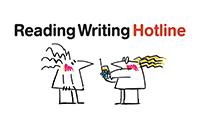
06 Feb Future proofing the Adult LLND sector in TAFE NSW
As many of us know, there is a critical shortage of adult literacy and numeracy teachers throughout Australia.
Last year the Hotline was delighted to learn that TAFE NSW successfully trialled a literacy and numeracy professional development program called Adult Literacy and Numeracy Teaching (ALaNT).
We thought we’d find out about its development and what the trainee teachers/graduates thought about it. We asked some of the developers Ros Bauer, Lyn Wilson and Gemma Beall to tell us how the program came about.
How it originated
A core group of expert LLND teachers developed the ALaNT program to address the immediate and short term LND teacher skills shortage in TAFE NSW.
Development group is comprised on Gemma Beall, Lyn Wilson and Ros Bauer, all recipients of the Excellence in Adult Language Literacy Numeracy award; Jodie Hummerston Adult Literacy industry specialist and training package writer, and Dave Tout internationally renowned numeracy specialist. Peter Freebody, cofounder of the Four Resources Model for Literacy has also been consulted.
It was based on two previous professional development programs – Course in Adult Literacy teaching and Course in Adult Numeracy teaching. Adult Literacy and Adult Numeracy Teaching. The program has been developed to meet critical skills gaps and provide pathways. It is not intended to replace Higher Education qualifications.
ALaNT, which incorporates the Foundation Skills Integration skill set meets a modification to minimum Adult LLND teacher requirements, as a pathway to AQF 7 or 8.
Aim of the program
The program aims to provide teachers with the skills to work with vulnerable learners and develop literacy and numeracy lesson plans. Best practice adult literacy numeracy teaching methodology and a range of literacy and numeracy theories underpin the program. ALaNT graduates develop the skills and knowledge to teach literacy and numeracy to adults in a range of contexts, such as:
- Dedicated adult literacy numeracy programs
- Vocational pathway programs
- Job seeker programs
- Learner support in vocational and workplace programs.
Who are the target groups of students?
The target group has a wide reach including new, developing and expert LLN teachers. For example:
- Trainers who wish to develop their skills in supporting their vocational learners or who wish to transition into Adult LLN teaching roles.
- Teachers new to the field, who can use this pathway into Higher Education.
- Developing teachers who may have a qualification in education but not necessarily in their LLN.
- Experienced teachers who would like to upskill as part of their professional development.
The introductory part of the course is also relevant for a broader audience such as TAFE Service Co-ordinators who regularly promote courses, customer service representatives who assist with course enquiries, and career counsellors.
What does the course cover?
The course consists of five modules:
- Module 1 National literacy and numeracy issues
Describes the knowledge required to understand the context of adult literacy and numeracy teaching in Australia including adult learning theories and student-centred learning.
- Module 2 Planning learner centred lessons
Describes the skills and knowledge required to use a plan for learner-centred teaching. It includes an introduction to adult frameworks, the Australian Core Skills Framework (ACSF), the Core Skills for Work (cs4w) and Digital Skills framework.
- Module 3 Teaching reading and writing
Describes the minimum skills and knowledge required to teach adult literacy skills, according to learners’ individual needs. This includes personal, community, social, workplace or educational needs.
- Module 4 Teaching numeracy
This module describes the minimum skills and knowledge required to teach adult numeracy skills, according to learners’ individual needs. This includes personal, social, community and workplace or training needs.
- Module 5 Completing a practicum
This module describes the minimum skills required to implement effective literacy and numeracy teaching practice during practicum sessions. It includes observing the teaching practice of other literacy and numeracy teachers and obtaining feedback on own performance with the view to strengthening one’s own teaching techniques.
Feedback
The feedback from graduates of the pilot program was very positive. Some typical comments are provided below:
“ The ALaNT course has been one of the most relevant courses that I have been engaged with during my 25 years as a TAFE Adult Education teacher. The content is current, practical and refreshing – it fully engages the enrolled co-hort. I have updated my knowledge and understanding of learning theories and been able to reflect on my own ongoing practice as an adult educator. My deepening understanding of the underpinning knowledge and skills of literacy and numeracy, and their application and development for adult learners is directly applicable to my daily delivery.”
“This Diploma level course has vastly increased my competence and confidence in teaching adult literacy and numeracy. The educational theories, teaching strategies and learner focused sessions have been enlightening, thorough and enjoyable. I didn’t know what I didn’t know and frankly, my teaching ability has expanded significantly by participating in this course. Thank you to the great teachers and support team for delivering a top-quality program… “
“…This has deepened my understanding of the strategies used in adult literacy and numeracy. Previously my background was totally in TESOL and this course has bridged the gap between the two disciplines and made me more aware of different ways and best practice teaching for our adult literacy and numeracy learners…”
“… I have learnt how I can apply this knowledge to teaching all different kinds of cohorts in TAFE NSW. This has been life changing. I think all teachers would benefit from doing ALaNT regardless of what they are teaching…
For further information contact Ros Bauer on [email protected]


